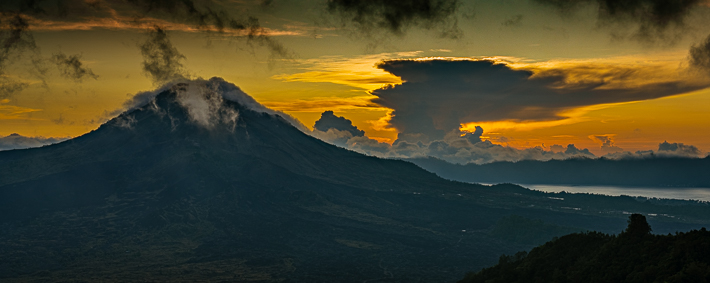
Sunrise at Mount Batur, an active volcano that last erupted in 2000.
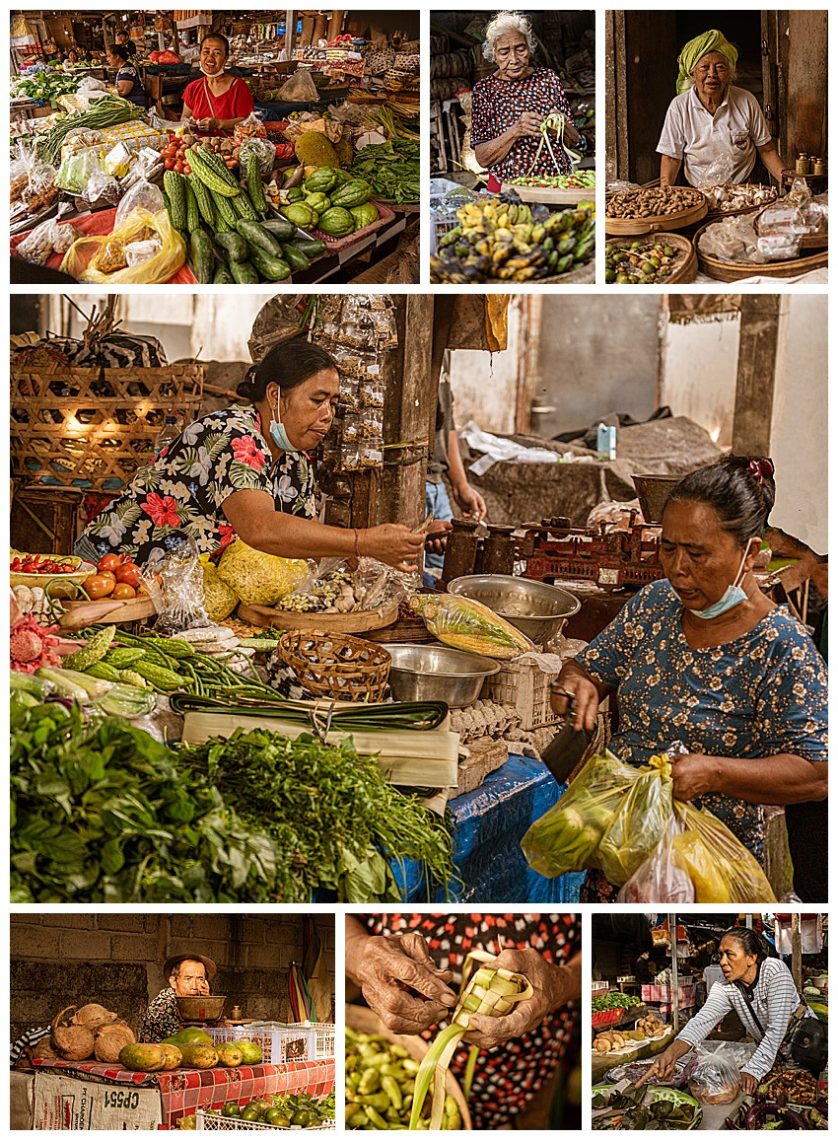
Pejeng Traditional Market at Tampaksiring, Bali. The locals shop here for all basic necessities, including fresh vegetables, fruits, meats, fish and spices. It is similar to Feria Libra in Cuenca, though some of the foods and non-perishables are unique to Indonesia.
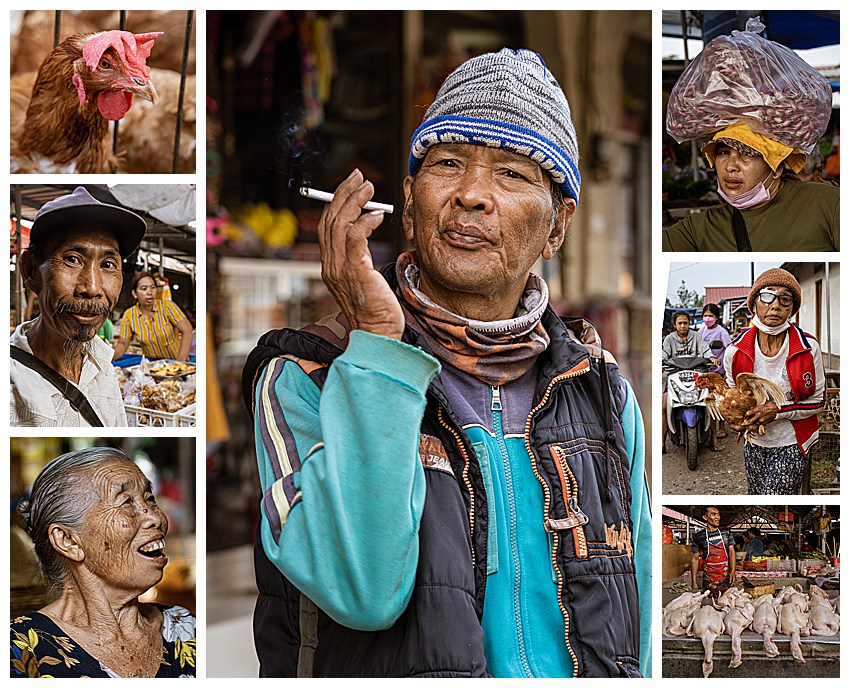
The market is clean and the vendors welcome talking to foreigners and having their photos taken.
Smoking is almost universal among the men (center), with cigarette advertisements plastering every restaurant and store front. The slogan for the biggest brand is “Never Quit,” and shows some masculine man either in a boxing ring or climbing an incredible peak. All such banners are required by law to have the obligatory warning sign, as in America, but this one actually shows a man with a tracheotomy from smoking. Just as in America though, such warnings have little impact.
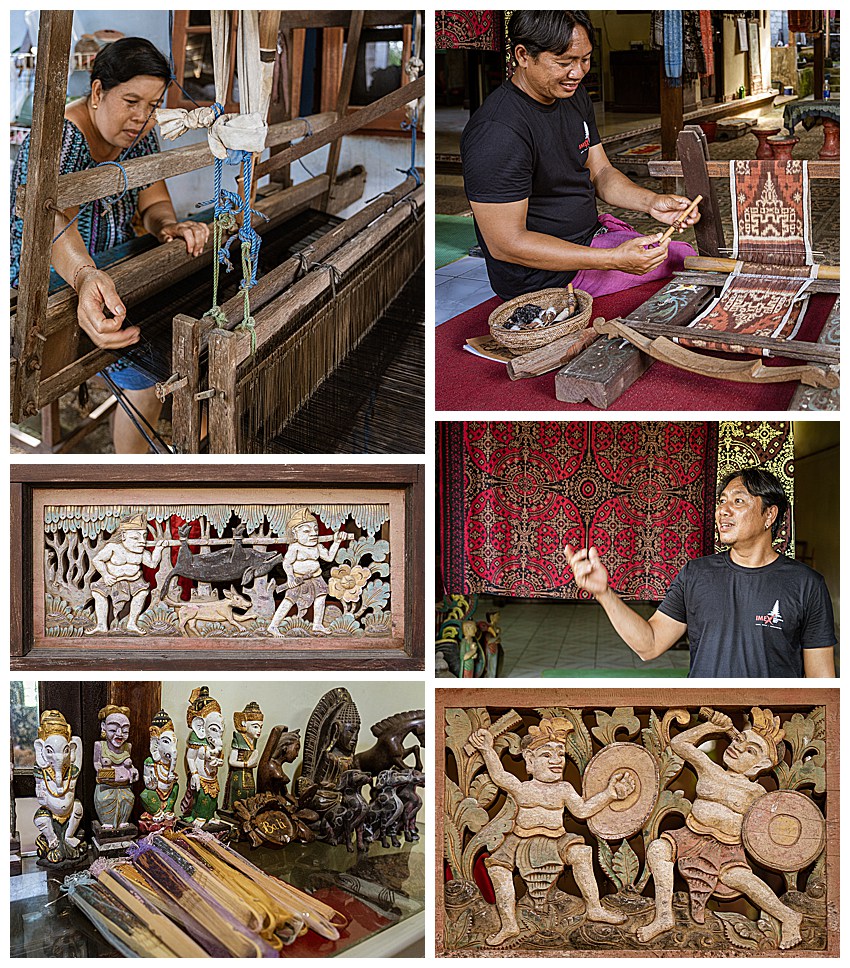
Ikat, a single and double-woven textile, is a popular product from Tenganan Village, an ancient village in Bali. There are only three places in the world that still use this complicated weaving process – India, Guatemala and Indonesia. The ikat method is unique in that the yarns are dyed before they are woven, and requires incredible skill as an artisan to produce beautiful patterns.
Tenganan are known for their “flaming” cloth, which is supposed to possess magic powers to protect against black magic. The 18 second video above is a demonstration of the Ikat weaving process on a loom.
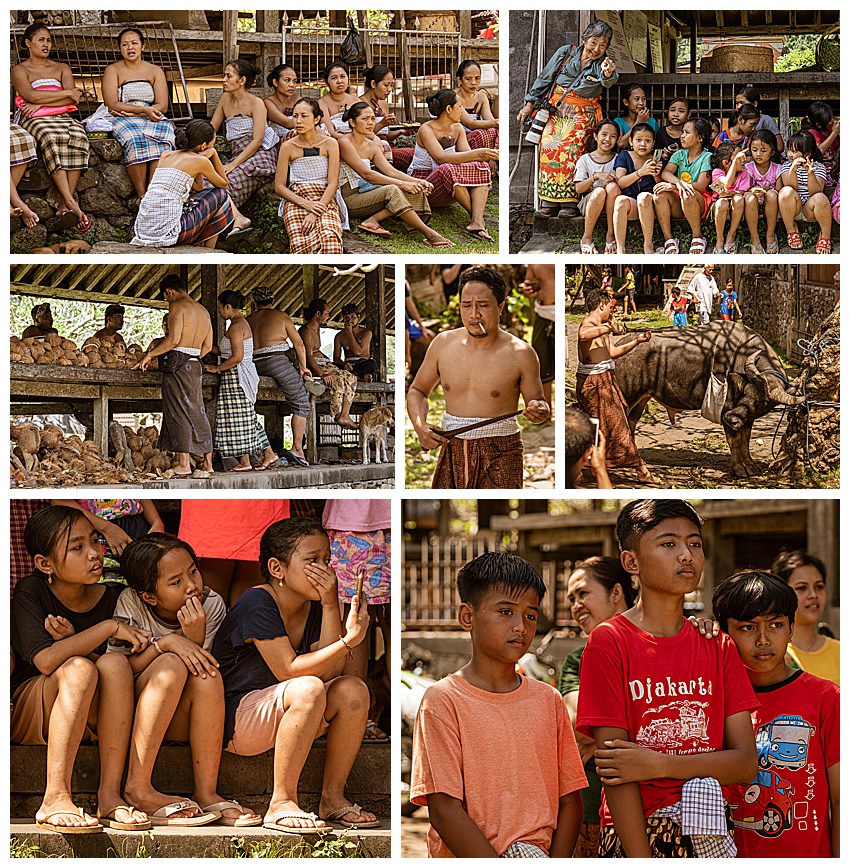
In the ancient Balinese village of Tenganan Pegringsingan, many traditional rituals have been maintained, including the annual sacrifice of a buffalo, considered as their most sacred animal. The women and children all anxiously watched until the buffalo has been ceremoniously slaughtered and offered to the gods (middle-right). while a team of men prepared coconuts (middle-left) for the coming feast.
Unfortunately, the man (center) who was assigned to sacrifice the bull was inexperienced, and botched the job badly. The people watching went from fascinated (top row) to horrified (bottom row) as the process took far longer than intended.
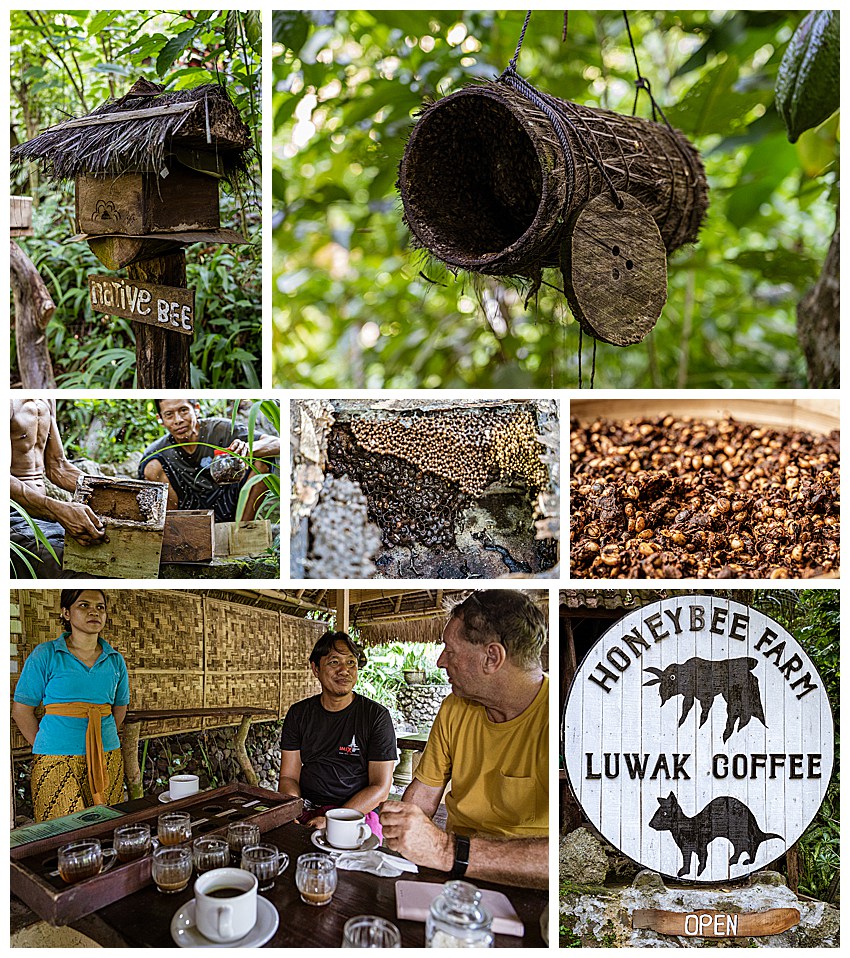
Some other unique products from Indonesia are Luwak coffee and honey. Luwak coffee consists of partially digested coffee beans, which have been eaten by the Asian palm civet. The coffee beans are fermented after being defecated (middle-right), collected by locals in the wild forest, cleaned then roasted.
Two types of honey were also available — one made from a stingless black bee (middle-left and center) and the other from a native local bee. Though the black bees have no stinger, they do tend to crawl up a handler’s nose and ears, which is why the handlers have cotton stuck in both (middle-left).
The honey made by the black bees is sweeter, with a unique tang that makes it very pleasant. Unfortunately, it only produces half the yield of the local bees (with stingers!), and is harder to process. Thus, the honey made by the stingless black bees is much more expensive.